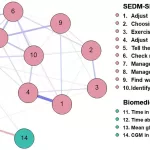Experiencing job insecurity during early adulthood, a phenomenon often associated with the gig economy, may significantly increase the risk of developing a serious alcohol-related illness later in life, suggests a long-term study published in Occupational & Environmental Medicine.
Moreover, the research indicates that men who find themselves in precarious employment situations during their youth are more susceptible to this risk compared to young women.
The study delved into the prevalence of “precarious employment,” characterized by non-standard or temporary work arrangements that are typically low-paid, unstable, and lacking in protections. Despite the increasing prevalence of precarious employment in recent years, few studies have explored its potential ramifications on mental health and susceptibility to alcohol misuse.
Drawing on data from the Swedish Work, Illness, and Labor Market Participation (SWIP) group, the researchers examined 339,403 participants born between 1973 and 1976. Employment status data were collected between 1992 and 2006 when participants were aged 19 to 30, three years post-graduation from their highest level of education.
The study categorized employment status into five groups, with precarious employment being one of them. The analysis revealed that individuals in precarious employment were nearly twice as likely to develop an alcohol-related illness compared to those in standard employment, while the long-term unemployed faced almost three times the risk.
Furthermore, the association between precarious employment and alcohol-related illness was notably stronger among men, who exhibited a 50% heightened risk compared to 32% among women.
While the study underscores the potential impact of job insecurity on alcohol-related health outcomes, it also acknowledges certain limitations. As an observational study, it cannot establish causation, and the researchers note that the findings may not be universally applicable due to limitations in the data.
Despite these limitations, the study sheds light on the relationship between precarious employment and alcohol-related illness, emphasizing the need for further research and policy interventions to address job insecurity and its potential health implications.
The researchers conclude by highlighting the importance of understanding the role of precarious employment in shaping health behaviors, particularly during sensitive periods like young adulthood. As they aptly put it, “The results of the current study suggest that this decision appears to be marginally more beneficial compared with remaining unemployed, which adds to the discussion of whether any job is really better than no job at all.”
The study, titled “Precarious employment in young adulthood and later alcohol-related morbidity: a register-based cohort study,” was published in Occupational and Environmental Medicine.










